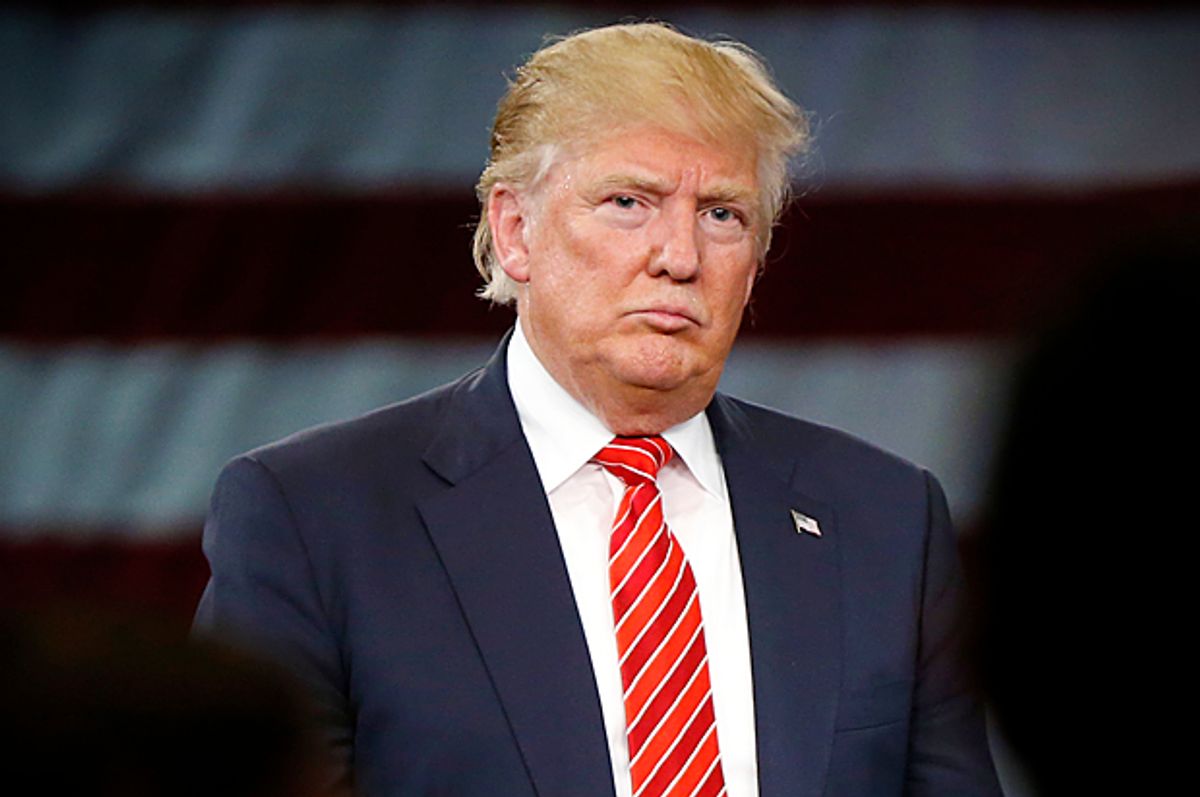If Republicans have any hope at all in November, it's that Donald Trump can grow the party. In particular, working class whites will have to respond to Trump's vaguely populist message. There are indeed many voters who feel displaced in this economy, and it's not unreasonable to think they'll find the Donald's anti-trade rhetoric appealing.
Discerning economic voters, however, understand that Trump's empty platitudes aren't solutions. Even if he occasionally stumbles upon a relevant point, he's offering nothing in the way of substance. The voters flocking to Trump are doing so for reasons beyond policy. His appeal is cultural as much as anything else. He's an ethno-nationalist peddling themes very much in line with Tea Party wing of the GOP – there's nothing new or surprising about that.
Republicans are nevertheless convinced that Trump can alter traditional voting patterns and bring millions of new voters to the GOP. This is believed for two reasons: 1) Trump continually says so and 2) He's on pace to receive more primary votes than any Republican candidate in history. Because Trump is shattering voting records, it's assumed he's expanding the party's base. But the data suggests otherwise.
A Politico analysis unearthed some instructive facts: “While Trump's insurgent candidacy has spurred record-setting Republican primary turnout in state after state, the early statistics show that the vast majority of those voters aren't actually new to the Republican Party, but rather they are reliable past voters in general elections. They are only casting ballots in a Republican primary for the first time.”
“All he [Trump] seems to have done is bring new people into the primary process, not bring new people into the general election process,” said Alex Lundry, who ran Romney's data science team in 2012. “It's exciting that these new people are engaged in the primary but those people are people that are already going to vote Republican in the [fall]. It confirms what my suspicion has been all along.”
If true, this is very big news. It means Trump hasn't widened the Republican tent or even changed the party in any meaningful way. On the contrary, it suggests he's only energized the culturally conservative wing of the party. These are voters that would never vote Democrat anyway.
This data shouldn't surprise anyone paying close attention to Trump's campaign. His ideological incoherence aside, Trump is exactly what you'd expect a party hijacked by Tea Party extremists and right-wing radio to produce. “Make America great again” is the most perfect distillation of the Tea Party ethos I've seen. It's another way of saying we have to “take our country back.” To most Americans, this sounds like a thinly veiled rejection of what America is slowly becoming – more progressive, more diverse, more culturally liberal.
To the discontents at Trump's rallies, however, it's a clarion call. It means, well, we have to take “our” country back. It means we have to build a wall. It means we have to ban Muslims. It means we have to disengage from the modern, globalized world. It means we have to be what we were 30, 40, or 60 years go. These aren't novel motifs in today's Republican Party - Trump is just louder and more transparent.
So Trump will rally what are reliably Republican voters in November. But this notion that he's building a broad coalition of conservatives, moderates and liberals has no basis in fact. As long as Trump's dominance is limited to Republican primaries, we know only one thing: He's popular among Republican voters.



Shares